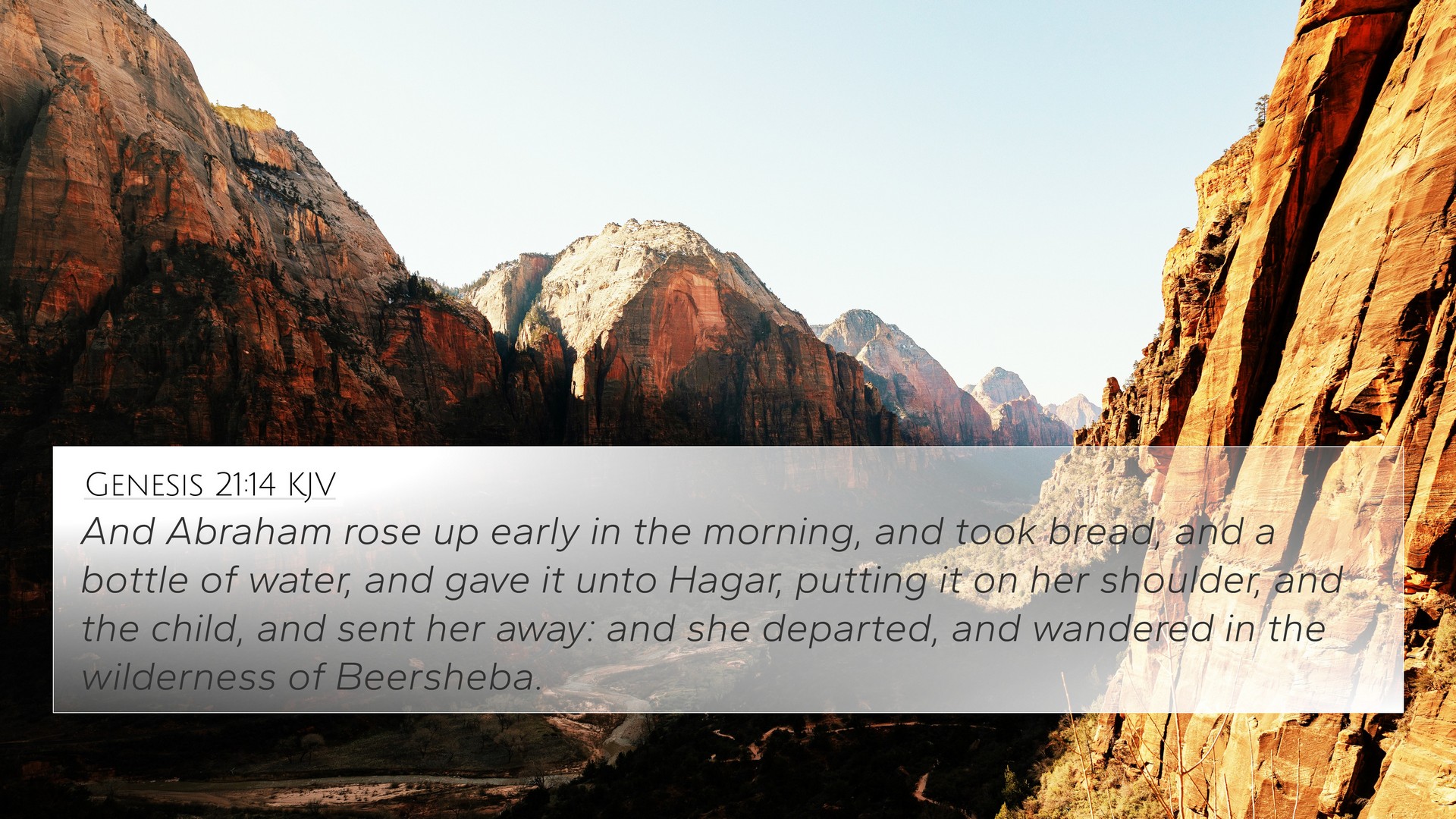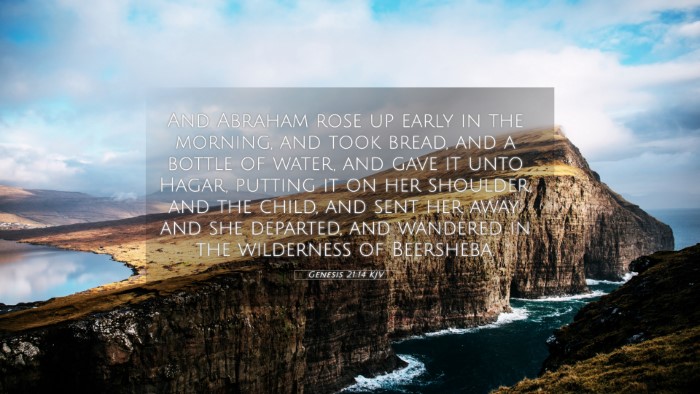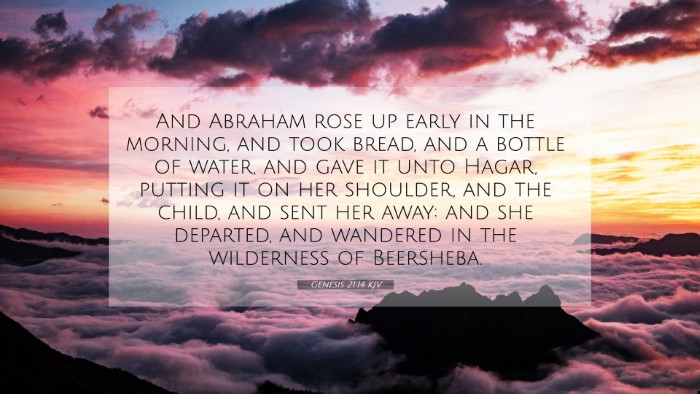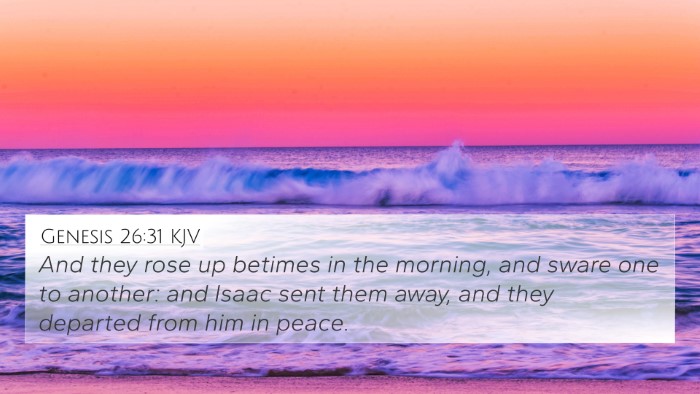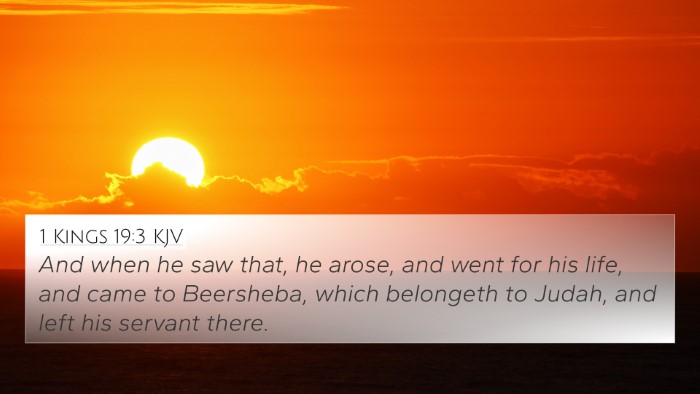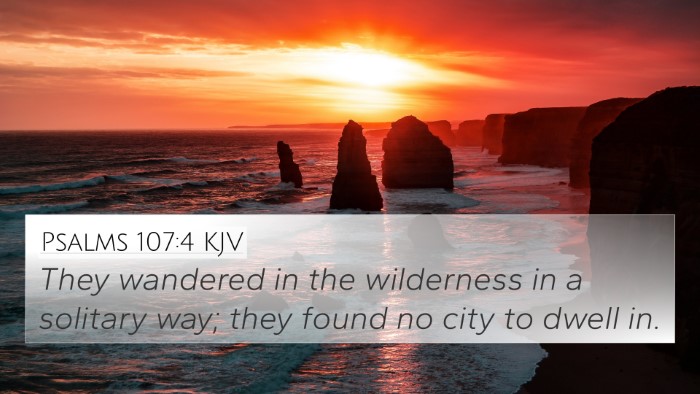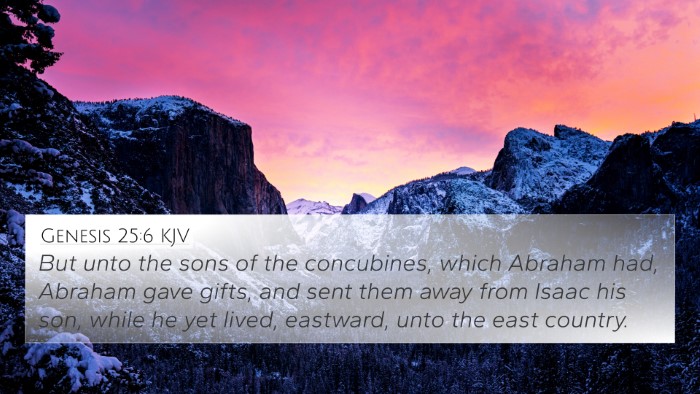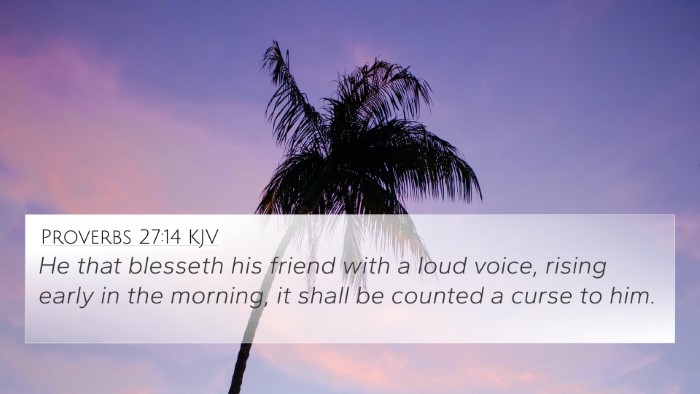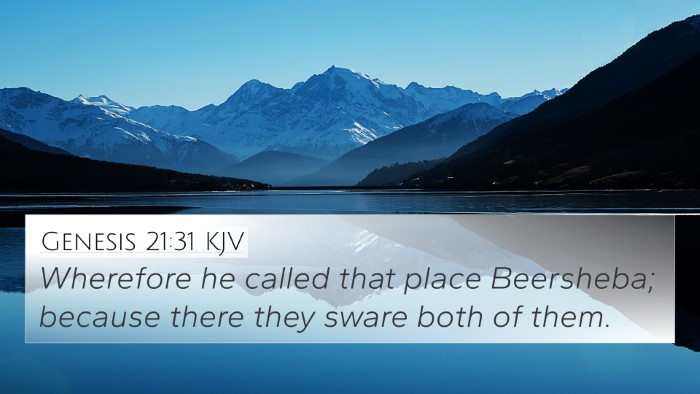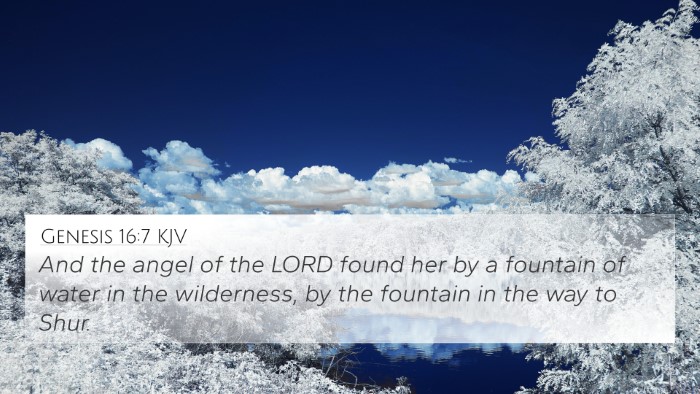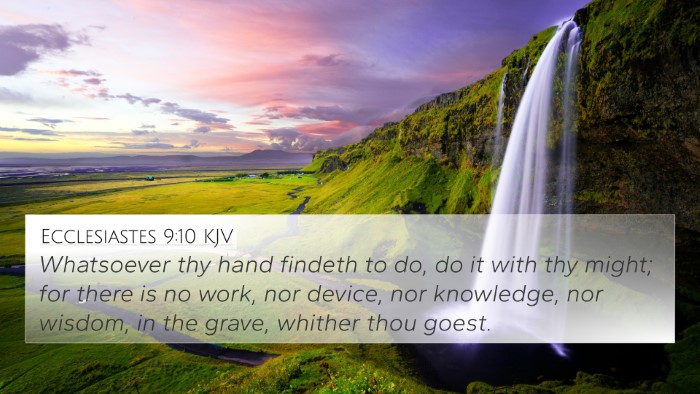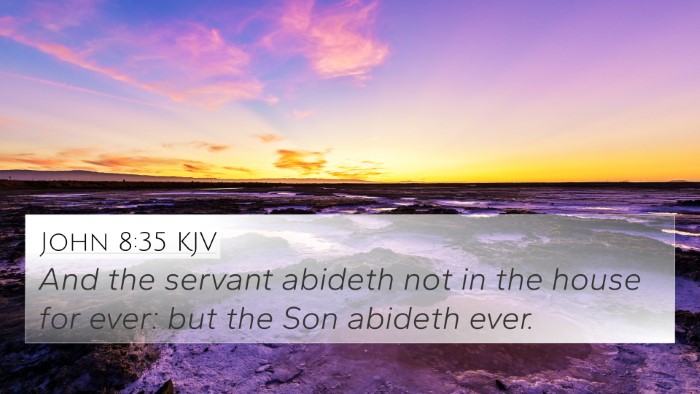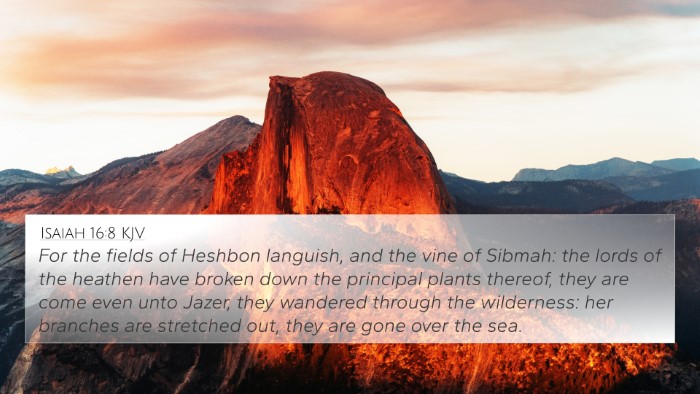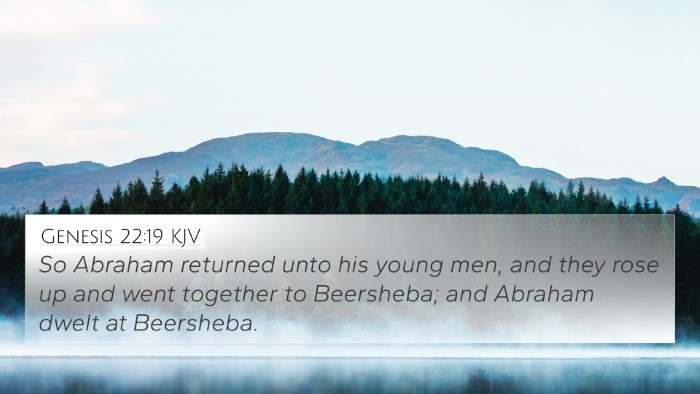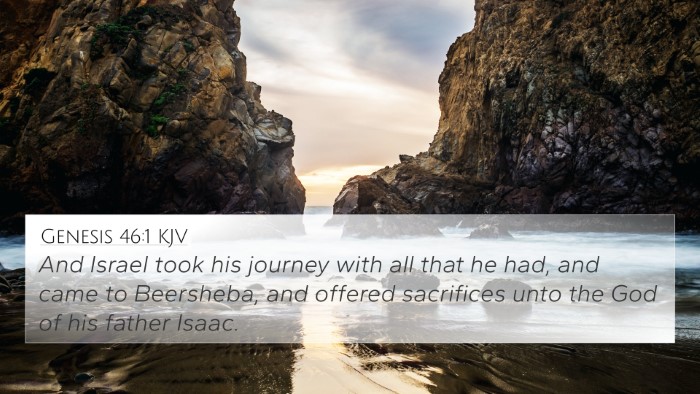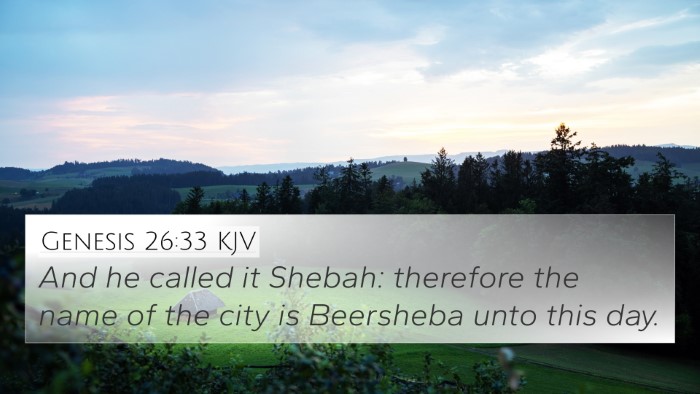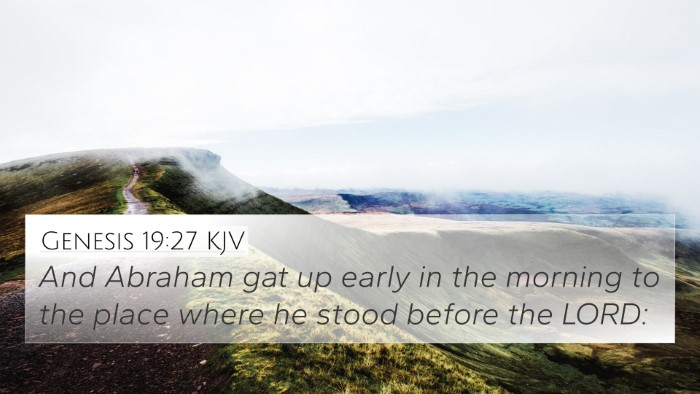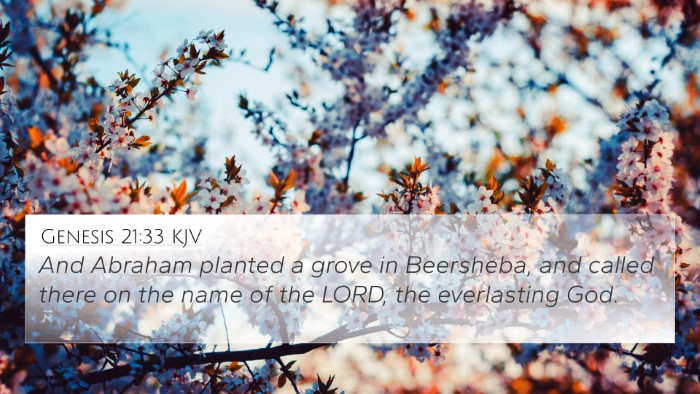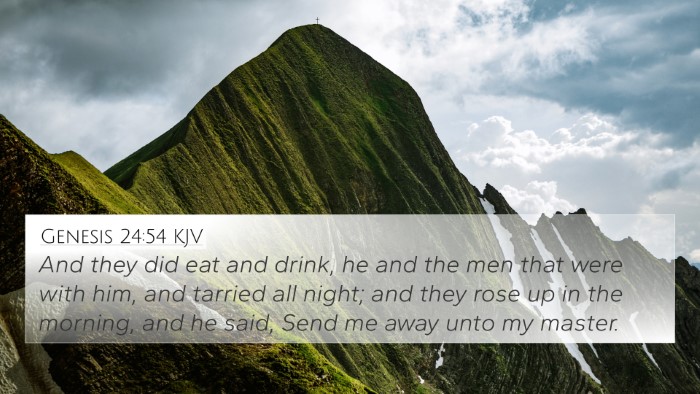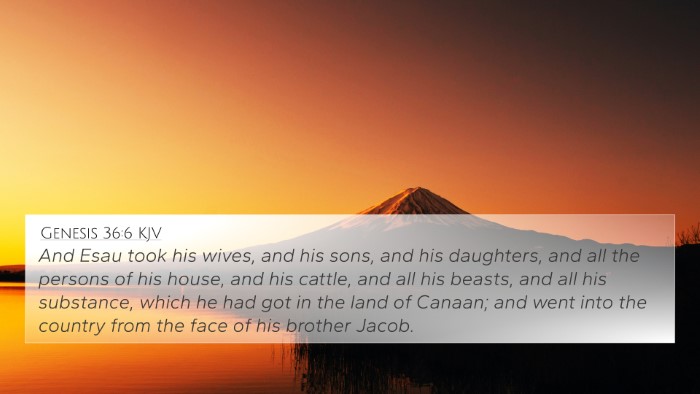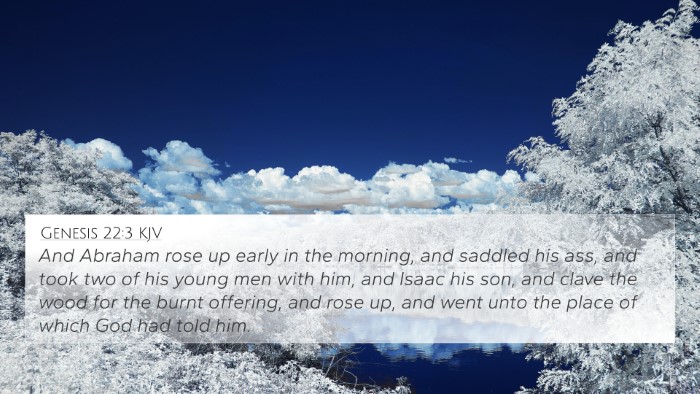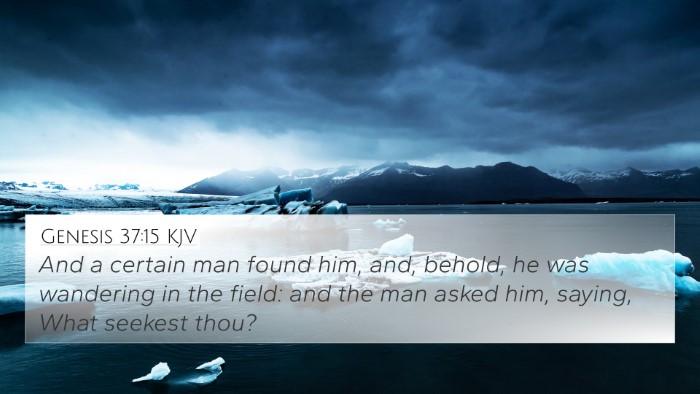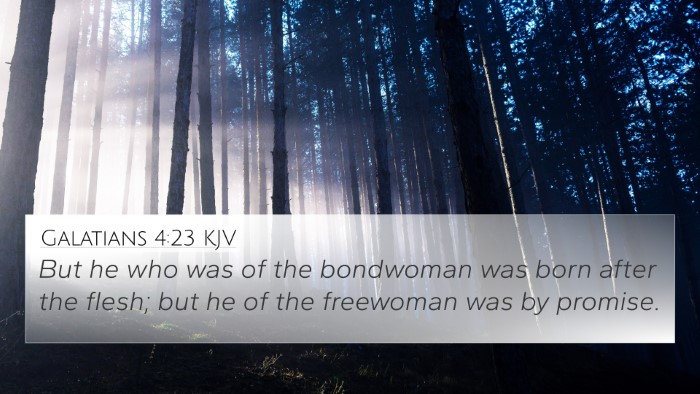Understanding Genesis 21:14
Genesis 21:14 says, "So Abraham rose early in the morning, and took bread, and a bottle of water, and gave it unto Hagar, putting it on her shoulder, and the child, and sent her away: and she departed, and wandered in the wilderness of Beer-sheba."
Verse Overview
This passage depicts a pivotal moment in the biblical narrative where Abraham sends Hagar and his son Ishmael away. This act signifies critical themes of abandonment, faith, and God's providence.
Contextual Background
To fully understand Genesis 21:14, it is essential to consider the broader context. Hagar was an Egyptian servant of Sarah, Abraham's wife, who had borne Abraham's first son, Ishmael, due to Sarah's barrenness. Following the birth of Isaac, tensions rose between Sarah and Hagar.
Commentary Insights
Insights from various public domain commentaries help illuminate this verse:
-
Matthew Henry:
Henry emphasizes Abraham's painful yet necessary decision to send Hagar and Ishmael away, depicting it as a fulfillment of God's promise regarding Isaac. This act illustrates the conflict between the flesh (Ishmael) and the Spirit (Isaac).
-
Albert Barnes:
Barnes discusses the significance of Abraham's provision of bread and water, symbolizing the limited but sufficient resources for their journey. He remarks on the emotional weight of sending Hagar away, reflecting the distress of a father forced to let go of his son.
-
Adam Clarke:
Clarke notes the geographical significance of Beer-sheba and the implications of wilderness wanderings. He suggests that this moment foreshadows Ishmael's fate as the father of a great nation, highlighting God's compassion toward Hagar and Ishmael despite their hardships.
Biblical Themes
This passage introduces several essential themes in the Bible:
- Divine Provision: Abraham's limited offering to Hagar illustrates God's provision even in times of uncertainty.
- Faith and Obedience: Abraham's actions stem from obedience to God, despite the emotional cost.
- Human Struggles: Hagar's plight symbolizes the struggles faced by those marginalized or cast out.
Cross References
Genesis 21:14 has numerous connections across Scripture, enhancing our understanding of its implications:
- Galatians 4:21-31 - Discusses the allegorical representation of Hagar and Sarah.
- Genesis 16:1-16 - Hagar's original context with Abraham and Sarah.
- Exodus 2:15 - The journey of Moses as a parallel to the wilderness experience.
- John 4:6 - Jesus meets a woman at a well, echoing Hagar's encounter with divine presence in the wilderness.
- Psalm 54:4 - The assurance of God's help during abandonment, reminiscent of Hagar's plight.
- Isaiah 51:2 - A reminder of God's historical faithfulness to those He has chosen.
- Romans 9:7-9 - The distinction between Isaac and Ishmael in the context of divine promise.
- Matthew 10:29 - God’s care for all souls, relevant to understanding Hagar’s situation.
- Hebrews 11:17-19 - Faith of Abraham echoed in his decisions and their consequences.
- 1 Peter 5:7 - Acknowledgment that God cares for those who suffer, similar to Hagar’s situation.
The Importance of Cross-Referencing
Cross-referencing Bible verses enhances our understanding of the interconnectedness of scripture. Here are some key reasons why you might engage in this practice:
- Deepen Understanding: By looking at related verses, one can gain a fuller picture of the themes present in Genesis 21:14.
- Sermon Preparation: Cross-references can help in crafting teachings that encompass wider biblical narratives.
- Thematic Analysis: Identifying connections allows for thematic studies that reveal the richness of biblical theology.
Tools for Bible Cross-Referencing
For those interested in exploring further, consider utilizing tools for Bible cross-referencing:
- Bible Concordance: Helps locate verses and phrases to establish links.
- Cross-Reference Bible Study: Encourages users to examine related verses for comprehensive study.
- Bible Reference Resources: Utilize commentaries and guides that provide cross-references.
- Comprehensive Bible Cross-Reference Materials: Look for books and digital resources that offer structured cross-references.
Conclusion
Genesis 21:14 serves as a poignant reminder of God's overarching plan through human decisions. Abraham's act of sending Hagar away is steeped in spiritual significance, echoing throughout the biblical narrative. By engaging in comparative Bible verse analysis, readers can uncover the breadth of meaning contained within this significant moment. Understanding scripture involves looking closely at connections between Bible verses and recognizing the fabric that these narratives create in God's story.
